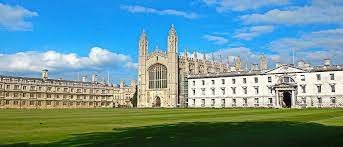Thailand is home to a number of world-class schools and universities that offer a wide range of programs, including master’s degrees. While the specific requirements for admission into a master’s program can vary from school to school, many schools will accept students with a Higher National Diploma (HND) certificate, second class degree, or third class degree.
In addition, there are a number of scholarships available for international students who wish to pursue their studies in Thailand. With its rich culture and warm climate, Thailand is an excellent destination for those looking to further their education.
Criteria For Admissions To Schools and Universities in Thailand
The criteria may vary from one institution to another, but several common requirements can guide prospective students through the application process. Below are the essential criteria and documents typically needed for admission:
- Academic Credentials: Applicants must submit their HND certificate or bachelor’s degree transcript. While some institutions accept second and third-class honors, the specifics can vary, so it’s advisable to check the institution’s policy.
- Proof of English Proficiency: Non-native English speakers are often required to submit scores from English proficiency tests such as TOEFL, IELTS, or equivalent examinations. Minimum score requirements differ among institutions.
- Statement of Purpose (SOP): A well-written SOP that outlines the applicant’s academic interests, professional objectives, and motivation for choosing the specific program and institution.
- Letters of Recommendation (LORs): Two to three LORs from previous educators or employers, highlighting the applicant’s academic and professional capabilities.
- Updated CV/Resume: A comprehensive resume that includes academic qualifications, work experience, achievements, and skills relevant to the intended field of study.
- Portfolio: For applicants to certain programs such as Art, Design, and Architecture, a portfolio showcasing their work may be required.
Prospective students are encouraged to visit the official websites of their chosen institutions or contact the admissions office directly to obtain the most current and detailed admissions criteria and ensure they meet all the necessary requirements before applying.
List Of Schools in Thailand that Accept HND Certificates, Second Class and 3rd Class for Masters Degree Programs
Finding the right educational institution in Thailand that aligns with your academic background, especially with an HND certificate or a bachelor’s degree classified as second or third class, can be a formidable task. However, Thailand hosts a range of schools that welcome students with diverse educational achievements into their Master’s degree programs. Below is a compilation of such schools, designed to ease your search and help you take the next step in your academic journey:
1) Bangkok University
Known for its modern approach to education and research, Bangkok University offers several Master’s programs that are flexible with the academic background of applicants. They value the professional experience and the potential for innovation in their candidates.
2) Chulalongkorn University
As one of Thailand’s oldest and most prestigious universities, Chulalongkorn has a variety of graduate programs that consider applicants with HND certificates and those who have earned second or third class honors in their undergraduate studies, especially in fields related to their intended Master’s program.
3) Mahidol University
With a strong emphasis on research and development, Mahidol University accommodates students from various academic backgrounds for their Master’s degree programs. They assess the overall profile of the candidate, including previous academic performance, work experience, and future potential.
4) Thammasat University
This institution is renowned for its inclusive education policies and offers a wide range of Master’s programs that accept HND holders and graduates with second and third-class honors, provided they meet other specific program requirements.
5) King Mongkut’s University of Technology Thonburi (KMUTT)
KMUTT values practical skills and real-world experience. It has several Master’s programs in engineering, technology, and design that are open to students with diverse academic qualifications, including HND certificates and lower-class bachelor’s degrees.
6) Assumption University of Thailand
This private institution offers a selection of Master’s programs that accommodate students with various educational backgrounds. Their focus on international education standards makes them a good choice for HND holders and second or third-class bachelor’s degree graduates seeking a global perspective in their studies.
Each of these schools has its own set of admission requirements and criteria, so prospective students should directly contact the admissions office or visit the official website of the institution for the most accurate and up-to-date information. It’s also beneficial to inquire about specific programs of interest, as some may have more stringent requirements or additional prerequisites.
Read Also: Fully Funded Bulgaria Scholarships 2024/2025
List Of Universities in Thailand that Accept HND Certificates, Second Class and 3rd Class for Masters Degree Programs
These institutions, renowned for their inclusive admission policies and dedication to fostering academic and professional growth, offer a myriad of Master’s degree programs catering to a wide range of interests and fields. Below, we explore some of these universities, offering insights into their unique qualities and the opportunities they provide for prospective students:
1) Kasetsart University
With a strong commitment to agricultural sciences, engineering, and business management, Kasetsart University extends its educational offerings to students from varied academic backgrounds. The university evaluates candidates based on their entire academic and professional profile, providing opportunities for those with HND certificates and lower bachelor’s honors to advance their education and career prospects.
2) Srinakharinwirot University
Specializing in health sciences, education, and the arts, Srinakharinwirot University is another institution that embraces students with a wide range of academic qualifications. Its focus on innovative research and community service makes it an attractive choice for students aiming to make a significant impact in their chosen fields.
3) Silpakorn University
Famed for its art and design programs, Silpakorn University also offers Master’s degree programs in a variety of disciplines that are accessible to students with HND certificates and those graduating with second or third-class honors. The university’s emphasis on creativity and aesthetic appreciation translates into a supportive and enriching environment for postgraduate studies.
4) King Mongkut’s Institute of Technology Ladkrabang (KMITL)
Renowned for its engineering, architecture, and information technology programs, KMITL provides a platform for students with technical and vocational qualifications, such as an HND, to pursue further studies. The university values practical experience and innovation, making it a suitable choice for those looking to expand their technical knowledge and skills at the Master’s level.
5) Rangsit University
Known for its comprehensive range of programs in health sciences, business, and communication arts, Rangsit University opens its doors to students with varied educational backgrounds, including those with HND certificates and second or third-class bachelor’s degrees. Its dynamic and modern campus life, coupled with a focus on research and development, creates an engaging atmosphere for postgraduate studies.
FAQS
Can I apply for Masters with my HND certificate?
In general, yes – an HND (Higher National Diploma) certificate can be considered as an entry qualification for a master’s degree program. However, the specific requirements for admission will vary between different universities and programs, so it is important to check with the school you are interested in to make sure you meet their specific requirements.
Can I apply for Masters with a second class degree?
Yes, many universities worldwide accept applicants with a second class (2:2) degree for master’s programs. However, admission requirements can vary depending on the university and program. Some universities may require applicants to meet additional criteria, such as relevant work experience or a strong statement of purpose, to compensate for a lower undergraduate grade. It’s advisable to research the admission requirements of specific universities and programs of interest.
Can I do Masters abroad with second class lower?
Yes, it is possible to pursue a master’s degree abroad with a second class lower classification. Many universities abroad consider applicants with this classification for admission to their master’s programs. However, admission requirements may vary between universities and countries, and some programs may have specific GPA or grade requirements. Prospective students should research the admission criteria of their desired universities and programs and ensure they meet the minimum requirements.
Can I do Masters with 2.2 GPA?
The answer to this question depends on the specific university and program you are interested in, as admission requirements can vary. However, in general, a 2.2 GPA (Grade Point Average) may be considered as meeting the minimum entry requirement for a master’s degree at some universities.
Which countries accept low CGPA for Masters?
Several countries may consider applicants with lower CGPA or GPA for admission to master’s programs, depending on their individual admission policies and criteria. Countries such as the United Kingdom, Australia, Canada, and some European countries may have universities that offer flexibility in their admission requirements, taking into account factors such as relevant work experience, letters of recommendation, and personal statements. Prospective students should research the admission criteria of universities in their desired countries and programs to determine their eligibility and explore options for further studies.
Conclusion
The pursuit of a Master’s degree in Thailand offers a unique opportunity for individuals holding HND certificates or bachelor’s degrees with second or third-class honors. The inclusive educational policies of Thai institutions signify a progressive step toward accommodating diverse academic backgrounds and professional experiences. This approach not only broadens access to higher education but also enriches the academic community with varied perspectives and expertise.
Prospective students are encouraged to carefully review the admission criteria and reach out directly to the institutions for the most current information. Each university and program may have unique requirements or offer special provisions for applicants from diverse educational backgrounds. Additionally, preparing a strong application, including a compelling Statement of Purpose, relevant Letters of Recommendation, and, where applicable, a portfolio of work, will significantly enhance one’s chances of admission.






